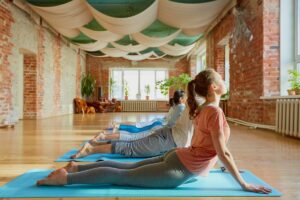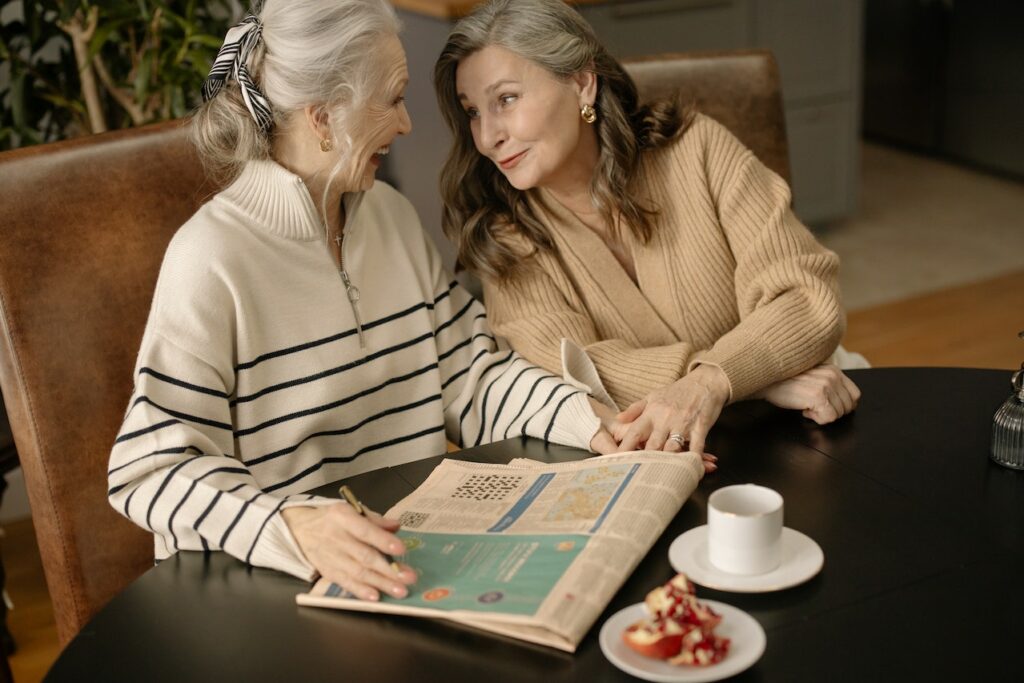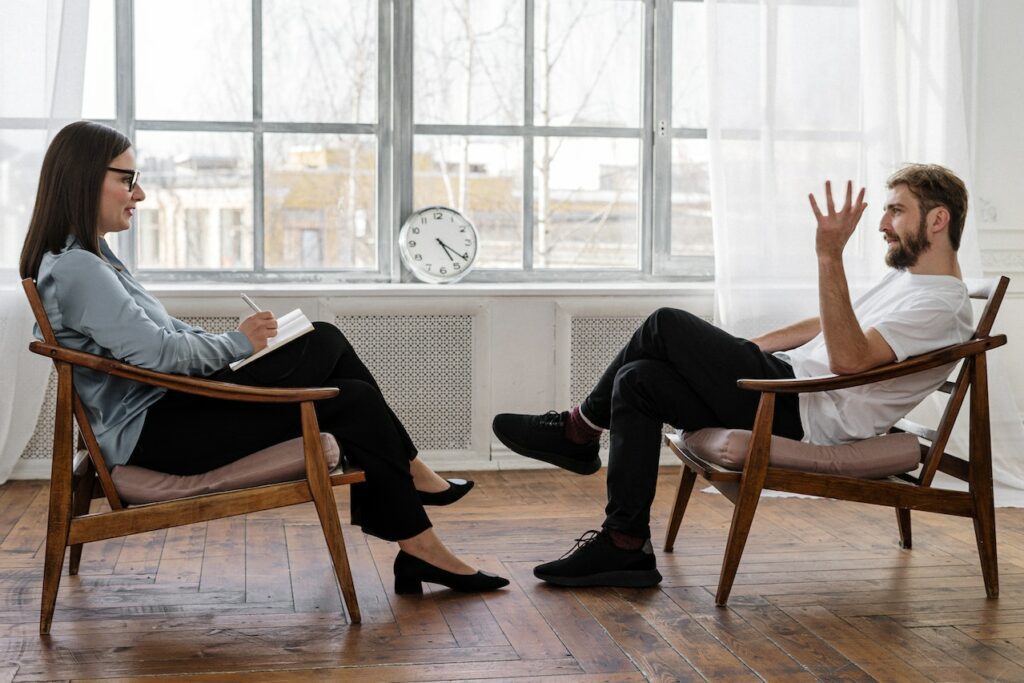Tired of anxiety and overwhelmed? Have you unsuccessfully tried several anxiety-fighting methods? You’re not alone. This blog article will discuss tiny everyday routines to combat anxiety.
I’ve seen how anxiety affects your mind and body. I’ve researched and collected data from studies and professionals to assist you to manage anxiety.
Deep breathing, writing, and aromatherapy are easy ways to relax and gain control.
Don’t believe me! I’ve collected testimonies from individuals who managed anxiety using these routines.
This article explains how gum, cold showers, and cleanliness may improve mental wellness. You’ll also learn about journaling, deep breathing, and aromatherapy’s calming effects.
Ready to explore some simple behaviors that might help you fight anxiety? Let’s go!
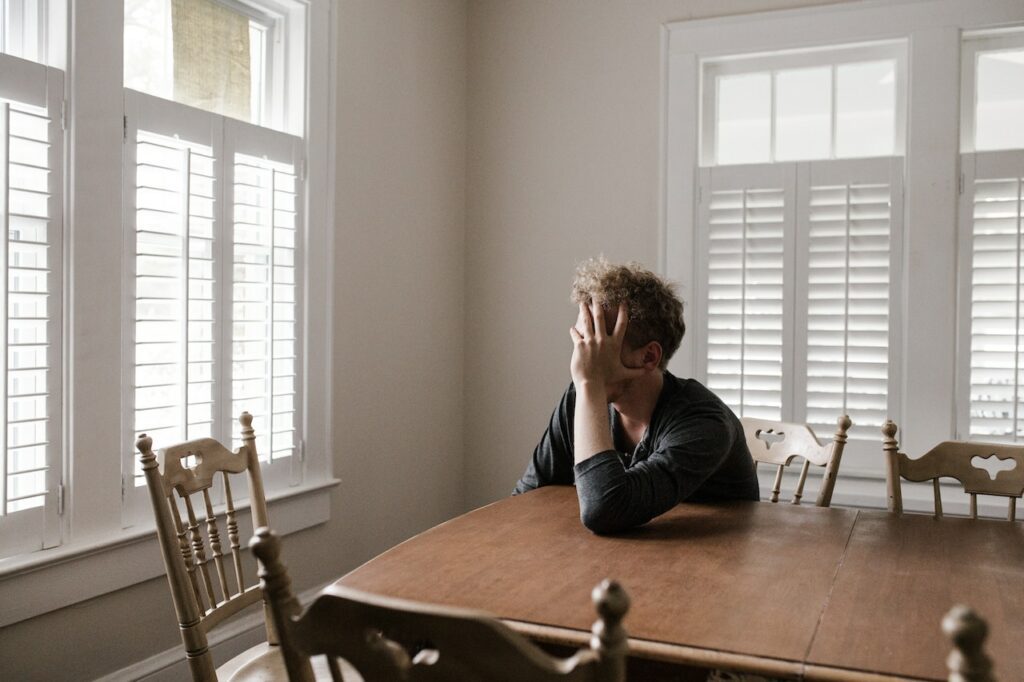
Daily Exercise
Anxiety may ruin retirement when you should be enjoying life. Exercise helps reduce anxiety.
Exercise produces endorphins, which alleviate tension and anxiety. Regular exercise reduces anxiety as well as medicine, according to research. Ireland’s University of Limerick performed a 2018 study. They observed that 30 minutes of moderate-intensity exercise daily considerably reduces anxiety in older persons. The research also found that exercise reduced anxiety even after it was discontinued.
Exercise also improves physical health, which may boost mental wellness. Exercise may help you lose weight, prevent chronic conditions like diabetes and heart disease, and enhance your quality of life.
Exercise is beneficial regardless of intensity. Walking, swimming, or gardening may raise your heart rate and produce endorphins.
Do at least 30 minutes of moderate-intensity exercise a day; your body will thank you later, trust me!
Journaling
Journaling may help manage anxiety, which can be overwhelming. Writing about your emotions helps you understand and regulate them. Whether you’re a solitary person who can’t open up about their feelings easily or an extrovert, this practice can be life-changing – trust me!
In fact, journaling as an anxiety treatment was supported by a 2013 Journal of Psychotherapy and Psychosomatics research. The research indicated that writing about feelings for 20 minutes a day for four days lowered anxiety and despair. Emotional writing improved symptoms more than neutral writing.
Journaling helps to reduce anxiety and discover triggers and trends. Tracking your emotions and actions might reveal trends and help you manage.
Journaling may help control anxiety without particular skills or equipment. Pen, paper, and self-honesty are all you need!
Chewing Gum
Did you know chewing gum reduces anxiety? Chewing gum has been demonstrated to improve mental and physical health. Chewing gum lowers stress hormone cortisol and improves attention and anxiety.
In 2011, Appetite reported that chewing gum improves mood and reduces stress. Chewing gum during a hard activity reduced anxiety and tension in the research.
Why? Chewing may alleviate stress and anxiety-related jaw and facial tightness. Chewing is both calming and relaxing.
Tips for using gum to relieve anxiety:
- Use sugar-free gum: Sugary gum may damage teeth and raise blood sugar.
- Choose a taste you like: Gum comes in numerous flavors, so choose one that relaxes you.
- Gum is a tool, not a crutch: Gum may help reduce anxiety, but it’s not a cure. Addressing your anxiety’s sources and seeking expert treatment is still crucial.
Remember that everyone handles anxiety differently. Talk to a doctor about your anxiety therapy choices.
Taking Cold Showers
Have you tried a cold shower for anxiety? Despite their scary appearance, cold showers have been demonstrated to reduce anxiety and improve mood.
Cold showers activate the sympathetic nervous system, increasing blood flow, mood, and alertness. Cold water shock releases mood-boosting endorphins.
In 2007, Medical Hypotheses reported that cold showers helped reduce sadness and anxiety. Those who took daily cold showers for at least two minutes had significantly fewer despair and anxiety symptoms than the control group.
Here are some recommendations to try cold showers for anxiety:
If you’re new to cold showers, here are a few helpful tips:
- Start with lukewarm water and lower it as you become comfortable.
- Breathe deeply and quietly to handle cold water shock. When showering, take slow, deep breaths.
- Start with brief cold showers and progressively lengthen them.
Cold showers improve circulation, immunological function, workout recovery, and anxiety.
Aromatherapy
Aromatherapy uses plant-derived essential oils to improve health. Some scents have been demonstrated to relax the mind and body, making them effective for anxiety management.
Lavender and bergamot are common aromatherapy oils for anxiety. Lavender relaxes the nervous system and improves sleep. Bergamot’s vibrant, energizing scent may help relieve anxiety and despair.
According to a 2012 Journal of Alternative and Complementary Medicine study, inhaling bergamot essential oil reduces anxiety in outpatient surgery patients. Bergamot essential oil reduced anxiety in 109 patients before surgery.
Aromatherapy reduces anxiety, discomfort, and inflammation and improves sleep and the immune system.
Here are some ways to try aromatherapy for anxiety:
- Choose pure, organic, and trustworthy essential oils.
- Different aromas work for various people. Choose your favorite scent by experimenting.
- Diffusers let you inhale essential oil scents. Add a few drops of essential oil to the diffuser to smell the space.
Aromatherapy cannot replace medical treatments, so if you have any health issues, contact a specialist about them.
RELATED: Create a Mindfulness Corner at Home With These Items!
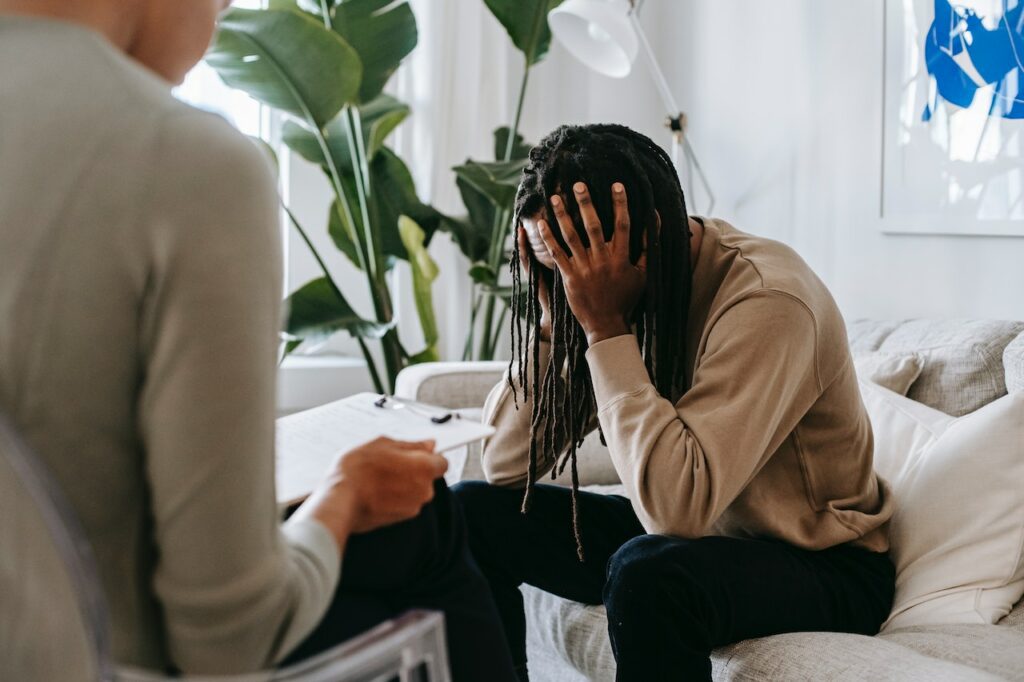
Good Hygiene
Didn’t expect to see this on the list, did you? Hygiene is a form of self-care that boosts confidence, mental wellness, and physical health, trust me!
Personal hygiene boosts self-esteem and reduces anxiety. You don’t have to spend a fortune on expensive brands or beauty sessions to feel its benefits.
Dove, Cetaphil, Neutrogena, and Aveeno are popular and affordable hygiene brands. These companies include body cleansers, face washes, and moisturizers to clean and nurture your skin.
Good hygiene is associated with improved self-esteem, decreased anxiety, and sadness, according to a 2015 International Journal of Dermatology study performed on 291 participants.
To alleviate anxiety, try these personal hygiene tips:
- Adopt a routine: Shower, brush, and wash your hands everyday.
- Select high-quality products: Seek for mild, chemical-free products suitable for your skin type.
- Make it fun: Use items you like and treat yourself to turn your hygiene regimen into self-care.
Good hygiene is just one part of an anxiety management plan. Talk to a doctor about your anxiety therapy choices.
When Should You Seek Professional Help?
Anxiety is a prevalent mental illness that may negatively effect your life. Anxiety is natural, but if it’s continuous and extreme, you may need expert treatment.
Signs you may benefit from seeing a counselor, psychologist, or psychiatrist:
- Persistent and excessive worry: If you can’t stop worrying, you may have an anxiety condition.
- Avoidance behavior: Anxiety disorders may drive you to avoid particular situations or activities.
- Physical symptoms: Anxiety disorders may cause headaches, weariness, muscular tension, and digestive difficulties.
Interference with everyday activities: If anxiety is affecting your daily life, get professional treatment.
Untreated anxiety problems may cause despair, drug misuse, and suicide. Professional aid can control symptoms and lessen the likelihood of serious consequences.
CBT may alleviate anxiety problems, according to a 2015 Journal of Psychiatric Research research. CBT changes anxiety-causing thoughts and actions.
If you have any of the aforementioned symptoms, get expert treatment. Mental health professionals can help you understand your symptoms and choose a treatment strategy. Seeking assistance shows strength and may enhance your quality of life.
Your Takeaway
I hope you enjoyed our article on minor behaviors to fight anxiety.
Anxiety management isn’t one-size-fits-all. Try various behaviors to see what works for you.
I’ve experienced anxiety’s crushing nature. You can manage your anxiety and enhance your life with the appropriate tools and practices.
This article covered the advantages of chewing gum, cold showers, personal hygiene, writing, deep breathing, and aromatherapy. These basic routines may improve mental wellness.
Little behaviors may assist manage anxiety, but they may not replace expert aid. Get mental health care if your anxiety is severe or hurting your everyday life.
Remember: you’re not alone in fighting anxiety. These modest changes to your everyday routine may help you manage your symptoms and improve your health.
Why wait? Try these tiny behaviors and see what works. Every little step contributes toward a happy, healthier self.




